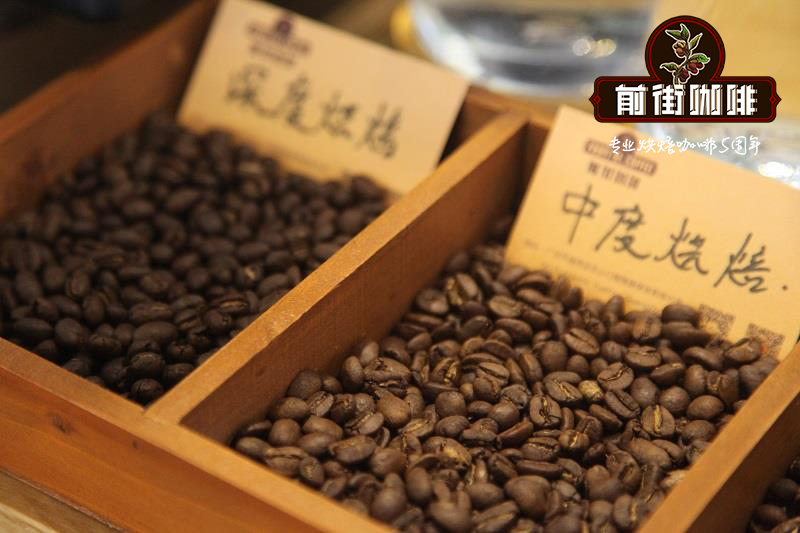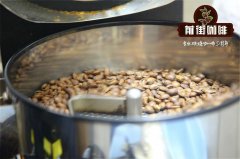Is PNG Island Coffee Bean an Iron truck Variety? Kigabah Manor, Papua New Guinea

Professional coffee knowledge exchange more coffee bean information please follow the coffee workshop (Wechat official account cafe_style)
These Papua New Guinea coffee beans come from Kigabah Manor, located in Banz in the western highlands province. It grows in nutrient-rich volcanic soil above 1520 meters above sea level. At this altitude, coffee can slowly mature, which in turn creates a dense bean and a complex flavor profile.
Kigabah Manor was originally founded by Australian farmers in 1960 as part of a development plan run by the Australian government. By 1980, Papua New Guinea had gained independence and reclaimed the land of local farmers and tribal people. Kigabah Manor is still one of the few pieces of land owned by foreign investors. In addition to producing some of the best coffee in the region, Kigabah Manor continues to help hire local communities and support local schools and health centres.
Cupping note
Fragrant, sweet, earth, fruit chong, citrus, caramel, bright, clean, consistent, spicy, round, very complex.
Origin: Kigabah Manor
Kigabah Manor (also known as the Kigabah East Plantation) is located at the bottom of the slope of the Kigabah Hills and in the heart of the Waghi Valley in Papua New Guinea's coffee-growing region of the western Highlands province. Kigabah Manor is a productive resource of its ancestors, the Wagabi tribe.
The plantation includes 235 acres of Arusha and bourbon varieties of coffee planted in what is considered to be some of the most fertile land in the PNG- topsoil is a beautiful black loam peat, and deep in some areas.
Planting methods are purposefully labour-intensive to avoid the use of pesticides and herbicides to ensure that coffee is pollution-free and cause minimal damage to the environment. Kigabah assisted in the construction of classrooms and teachers' dormitories in three community schools, the construction of gravity water supply to the village community of more than 1000 people, and the construction of a bridge.
Instead of using the "bare soil" method, all bushes are sprayed and removed, and peanuts have been planted in bushes to restore soil nutrients. The peanuts are controlled by cuts and, in turn, release nitrogen back to the system.
The tree is ringed weeding, allows the soil to be broadcast, and promotes careful application of input to prevent excess leaching into the environment, ensuring that it goes where it needs to be, to the tree!
Maintain the composition of the soil under the forest by preventing excessive leaching of nutrients and reducing soil erosion in heavy rain.
END
Important Notice :
前街咖啡 FrontStreet Coffee has moved to new addredd:
FrontStreet Coffee Address: 315,Donghua East Road,GuangZhou
Tel:020 38364473
- Prev

Analysis of roasting of fully washed beans in Papua New Guinea Kimel. How to bake Papuan coffee beans?
More information about coffee beans Please follow Coffee Workshop (Wechat official account cafe_style) Wahgi Valley Kimel Fully Washed Kimel, located in the town of Banz, near the Mount Hagen Mountains in Papua New Guinea, has a long history of producing high quality island coffee, and this coffee is no exception. This is a great new version of PNG Papua.
- Next

What is the variety of coffee beans in the Little Blue Mountains? characteristics of Baroida Baroda Manor in Papua New Guinea
Professional coffee knowledge exchange more coffee bean information Please pay attention to Coffee Workshop (Wechat official account cafe_style) Baroda Farm is a small family farm located in the eastern highlands of Papua New Guinea. I do not know whether it is luck or planning, the quality of the coffee grown on this farm is quite good. Original name: Papua New Guinea Baroida Plan
Related
- Detailed explanation of Jadeite planting Land in Panamanian Jadeite Manor introduction to the grading system of Jadeite competitive bidding, Red bid, Green bid and Rose Summer
- Story of Coffee planting in Brenka region of Costa Rica Stonehenge Manor anaerobic heavy honey treatment of flavor mouth
- What's on the barrel of Blue Mountain Coffee beans?
- Can American coffee also pull flowers? How to use hot American style to pull out a good-looking pattern?
- Can you make a cold extract with coffee beans? What is the right proportion for cold-extracted coffee formula?
- Indonesian PWN Gold Mandrine Coffee Origin Features Flavor How to Chong? Mandolin coffee is American.
- A brief introduction to the flavor characteristics of Brazilian yellow bourbon coffee beans
- What is the effect of different water quality on the flavor of cold-extracted coffee? What kind of water is best for brewing coffee?
- Why do you think of Rose Summer whenever you mention Panamanian coffee?
- Introduction to the characteristics of authentic blue mountain coffee bean producing areas? What is the CIB Coffee Authority in Jamaica?

